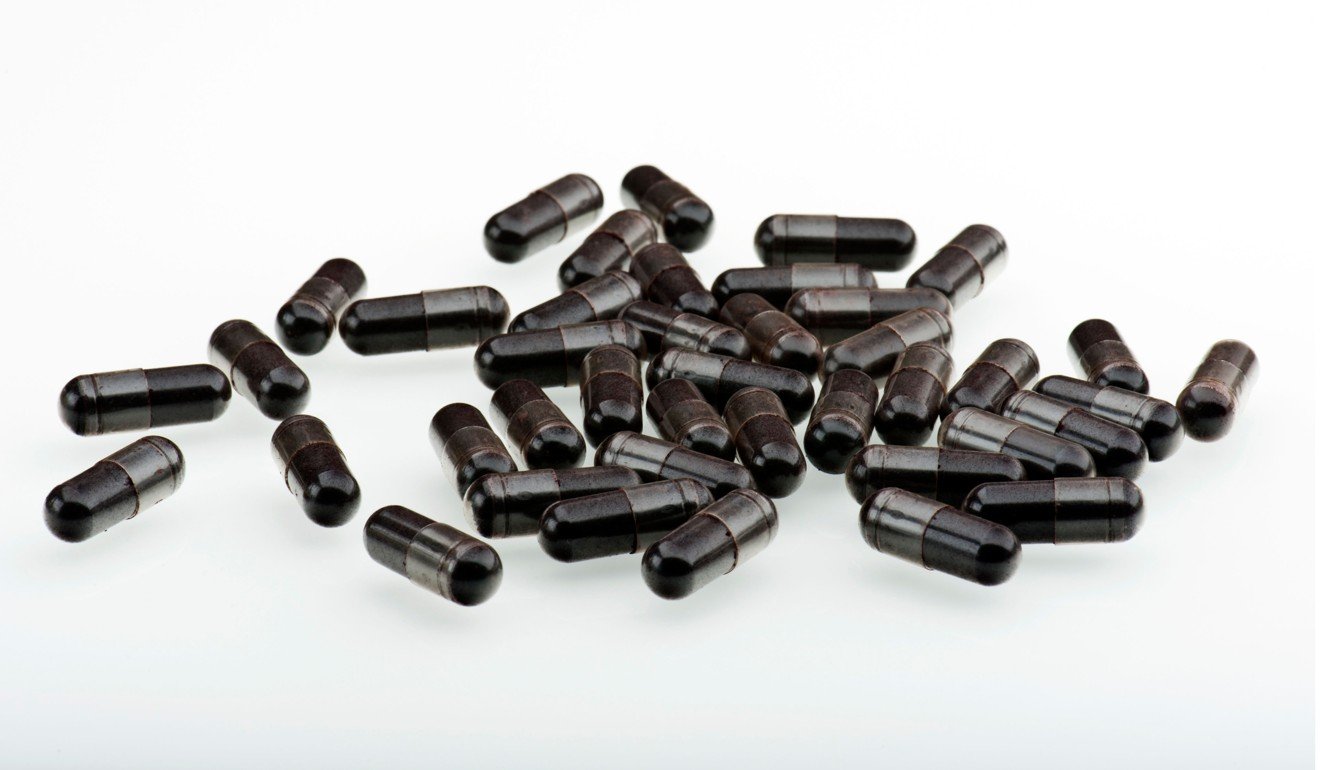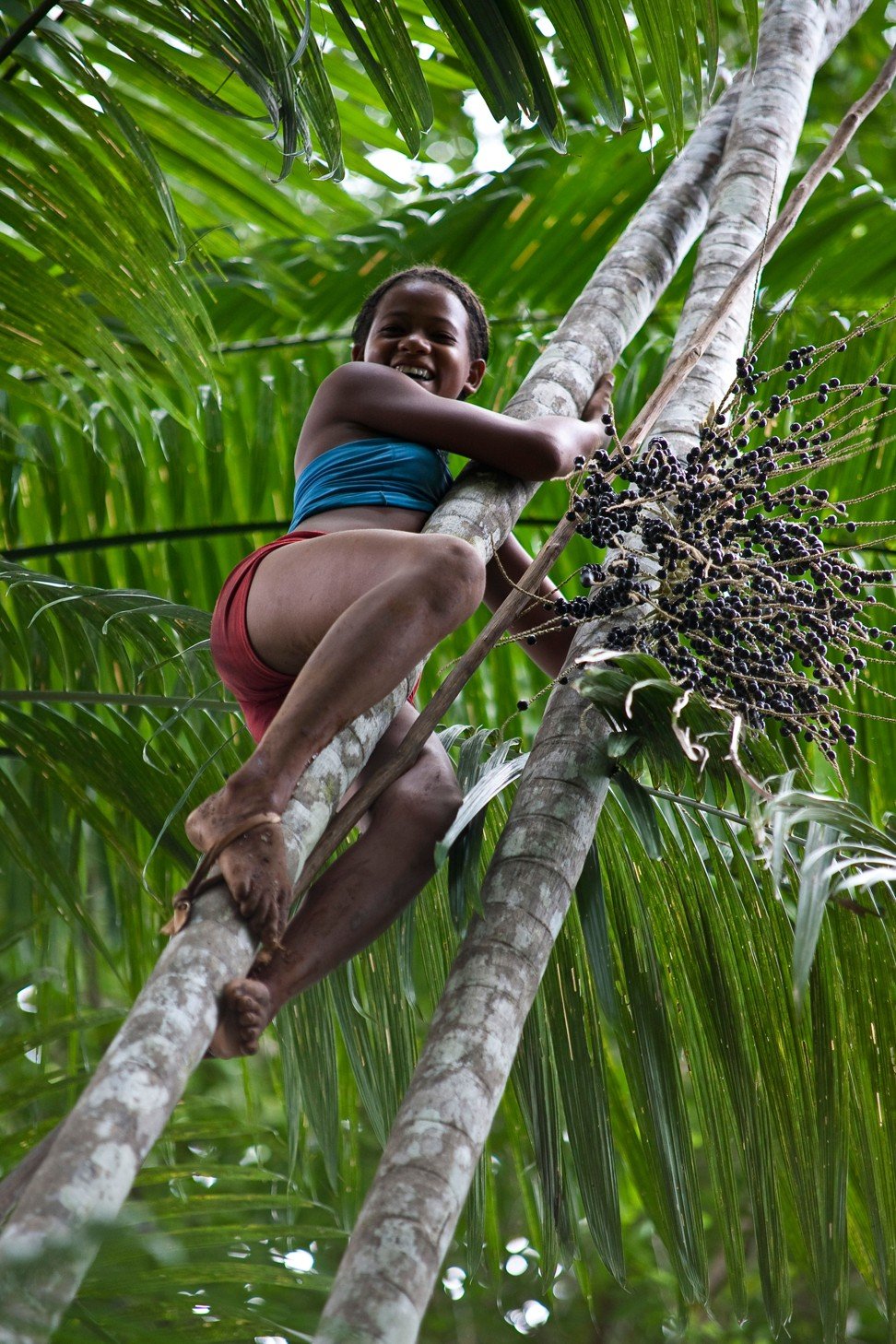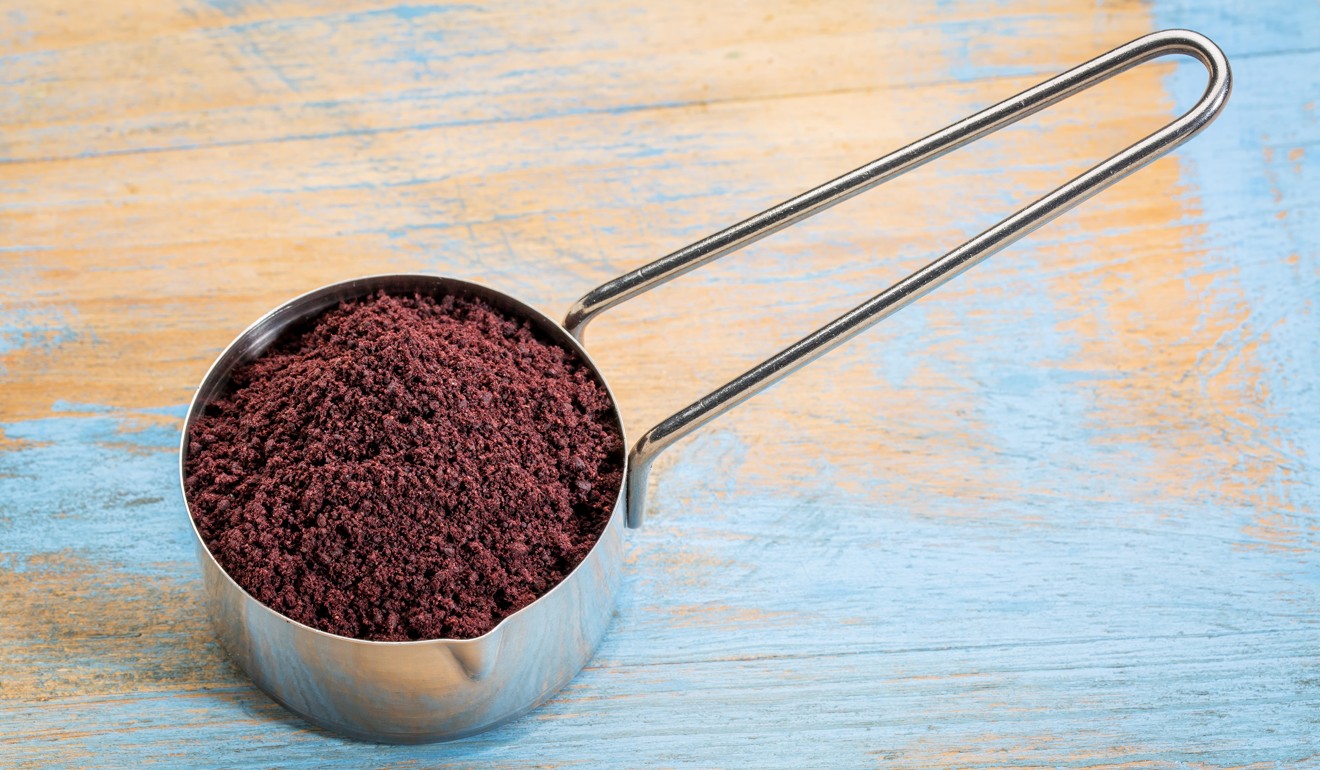Hands covered in chalk after a day of rock climbing in Rio de Janeiro, I would shout in Portuguese, still sweaty, “Um acai de 500 para viagem!” (“A 500ml acai to take out!”). Minutes later, I would get a glass of a sweet and delicious ice-cold acai shake. In this tropical clime, there was nothing more refreshing when hungry and dehydrated, and I drank at least half a litre every day while living in this city.
The 10 best nuts to eat, why they’re so good for you, and alternative super foods if you’re allergic
Acai, which looks like a dark rounded berry the size of a small grape, is the fruit of a palm which grows in swampy soils in the Amazon and Central American jungle. Indigenous tribes mashed it into a paste as a diet staple. Amazon rainforest settlers then adopted it and it has since become a working man’s meal, one of the most affordable foodstuffs in the Amazonian region of Brazil. The most popular varieties retail in Brazil at about HK$45 per litre of pure pulp.
Acai, however, is no treat to a palate – without the addition of sugar or other sweeteners (as in acai shakes) it tastes like a mixture of unripe gooseberries and mud.

In Hong Kong, I was surprised to see acai powder on sale in health and wellness shops at almost HK$200 for an 113g bag and marketed, to my astonishment, as a “superfood”. In Brazil, I had been unaware I had been stuffing myself with Amazonian superfood at bargain prices.
The Amazonia part fits the standard marketing story – superfoods often come from places “natural” and “pure”. The Amazon rainforest, brimming with life and far from the polluting influence of civilization, is touted as a source of primeval purity and life force. Eat something that comes from the Amazon, marketers suggest, and some of that life force will work its way into your body, healing, and cleansing along the way.
T
One global health food retailer’s website states, quite rightly, that acai has “for hundreds of years been part of the diet of native Amazon people”. Well, so has monkey meat.
A quick scan of online wellness and food supplement retailers reveals the versatility of the healing arsenal of this humble berry from jungle swamps, sold in both powder and capsule formats (one website offers 120 500mg capsules for HK$267). Remarkably, according to a similar website, just a couple of capsules a day can slow the aging process, improve your sex drive, make you sleep better, set your digestion straight, and prevent cancer.
To back these claims, promoters underscore that the antioxidants found in superfoods mop up deadly free radicals which, if let loose in our cells, may wreak havoc, lead to cancer and hasten aging. Ample scientific evidence, supplement brands say, exists to prove the fact that consuming antioxidants prevent cancer.

It is hard to make educated judgments on cancer research. To read a scientific paper on oncology and understand what it actually says (without even trying to evaluate the soundness of its methodology) requires a more-than-cursory knowledge of genetics, cell biology, experimental design, and statistics. Such knowledge cannot be instantly acquired, and so we must put our trust in experts.
The question is, what experts should you trust? Isn’t there an unspoken global conspiracy by big pharma, hospitals, and doctors to discredit the alternative, readily available cancer treatments, churning out, in Trump-speak, “fake news”?
The Cancer Research UK website bluntly calls the term “superfood” a “marketing tool”. It politely (after all, the reader might have just spent a small fortune stocking up on acai powder) but firmly dismisses the role of antioxidants in practical cancer cure or prevention. Cancer Research UK is the world’s largest independent cancer charity, funded almost entirely by individual donations. Conspiracy theorists would scoff at these claims of impartiality, but anyone familiar with a UK high street knows Cancer Research charity shops and the lovely old ladies toiling in them, and surely these ladies cannot all be agents of big pharma.

Britain’s National Health Service is equally dismissive, saying “there is no evidence that antioxidant action on free radicals observed in the lab was of any benefit to human health,” and calling superfoods’ healing properties “a fantasy”.
Some of the compounds isolated from “superfoods” have been shown to inhibit the growth of cancer cells. “Isolated”, though, is the key word. This inhibition was not observed in a living organism, but in a culture of cells, and the compound was used in a purified form.
The concentration of these isolated, purified compounds used in the tests is often magnitudes greater than what you would digest if eating the actual fruit or berry. Basically, the effect is observed after individual cells, isolated in a test tube, are subjected to very large doses of purified compounds. This is about as far as you can get from the “as nature intended” marketing philosophy of “superfood” supplements.
Returning to the subject of acai itself, one must wonder what kind of effects consumption of the libido-enhancing, life-prolonging berry has been unleashing on the unsuspecting Amazonian inhabitants who guzzle it daily by the bowlful. A popular British natural health website suggests they have “fantastic hair and nails”.
Exactly how fantastic the hair of Amazonian peasants is remains to be formally assessed, but something must certainly have gone awry in my case. According to my conservative estimates, I consumed about 150 litres of acai shakes while living in Brazil. It did not stop me growing a sizeable bald patch.
http://www.scmp.com/lifestyle/health-beauty/article/2100601/why-acai-berries-probably-wont-boost-your-sex-drive-or
Click Here For More Articles

No comments:
Post a Comment